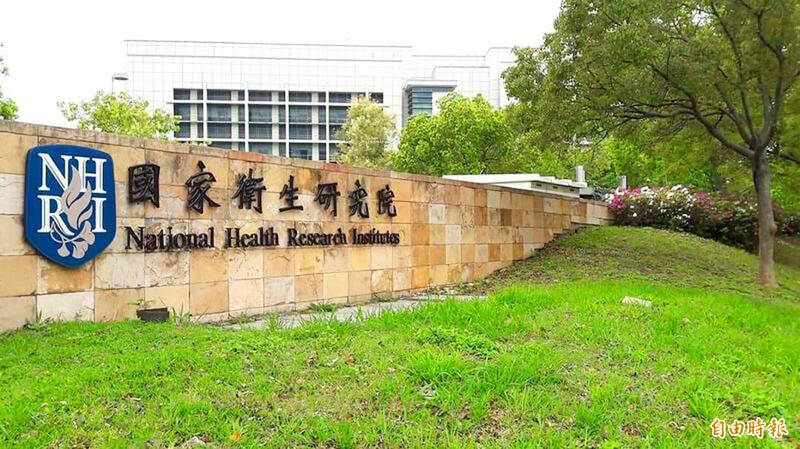Top Stories
Taiwan’s National Infectious Disease Bank Set for 2024 Completion

Taiwan’s National Infectious Disease Bank is on track for completion in 2024, according to a statement from the National Health Research Institutes (NHRI). This facility aims to enhance the country’s research capabilities and foster international collaboration in epidemic prevention.
Sytwu Huey-kang, president of the NHRI, outlined the facility’s purpose during a press briefing. The bank will support the development of technologies for epidemic prevention, including domestically produced vaccines, diagnostic reagents, and innovative treatments for infectious diseases. In his address on October 10, 2023, President William Lai confirmed that the project is proceeding as scheduled and emphasized Taiwan’s commitment to strengthening its biotechnology partnerships globally.
The concept for the National Infectious Disease Bank originated during the COVID-19 pandemic, when the Ministry of Health and Welfare identified the necessity for a centralized biorepository. At that time, then-Minister of Health and Welfare Chen Shih-chung proposed establishing a national platform to systematically collect biological specimens for research and development purposes.
Sytwu explained that the NHRI developed a comprehensive proposal in 2020, which included plans to create a national database of various infectious agents, such as bacteria, fungi, and viruses. The completion of the bank is expected to provide a crucial resource for researchers and public health officials.
To facilitate the transfer of biological materials, the NHRI has signed a memorandum of understanding (MOU) with the Centers for Disease Control (CDC). Previously, specimens collected by the CDC were limited to diagnostic and public health uses. The new MOU allows for these specimens to be transferred legally to the NHRI for broader research applications, including vaccine and rapid test kit development.
This collaboration aims to centralize research resources and establish a national-level database, accessible to academic institutions and the biomedical industry. Sytwu noted the NHRI’s recent membership in the World Federation for Culture Collections (WFCC) and the Asian Consortium for the Conservation and Sustainable Use of Microbial Resources (ACM).
The WFCC, based in the Netherlands, includes nearly 80 member states and over 100 organizations globally. The ACM, based in Japan, comprises around 35 member institutions. Sytwu highlighted that through these affiliations, Taiwan can share vital data on pathogens and ensure its locally collected strains are preserved in international databases.
With this representation, Taiwan can deposit its endemic bacterial and viral strains into global databases and gain access to foreign pathogen samples. This exchange will enhance the understanding of international epidemic trends. Sytwu stated that research on large-scale epidemics would no longer be restricted to national boundaries.
He emphasized that international cooperation and data sharing are essential for tracking pathogen variations and expediting the development of vaccines and treatments. These efforts are pivotal to Taiwan’s goal of achieving greater resilience in disease prevention, aligning with international standards in the post-COVID-19 landscape.
The establishment of the National Infectious Disease Bank marks a significant step forward for Taiwan in its ongoing battle against infectious diseases and its commitment to global health security.
-

 Business5 months ago
Business5 months agoKenvue Dismisses CEO Thibaut Mongon as Strategic Review Advances
-

 Lifestyle4 months ago
Lifestyle4 months agoHumanism Camp Engages 250 Youths in Summer Fest 2025
-

 Sports4 months ago
Sports4 months agoDe Minaur Triumphs at Washington Open After Thrilling Comeback
-

 Sports5 months ago
Sports5 months agoTupou and Daugunu Join First Nations Squad for Lions Clash
-

 Top Stories5 months ago
Top Stories5 months agoColombian Senator Miguel Uribe Shows Signs of Recovery After Attack
-

 World5 months ago
World5 months agoASEAN Gears Up for Historic Joint Meeting of Foreign and Economic Ministers
-

 Health4 months ago
Health4 months agoNew Study Challenges Assumptions About Aging and Inflammation
-

 Business5 months ago
Business5 months agoOil Prices Surge Following New EU Sanctions on Russia
-

 Entertainment4 months ago
Entertainment4 months agoDetaşe-Sabah Violin Ensemble Captivates at Gabala Music Festival
-

 Entertainment4 months ago
Entertainment4 months agoBaku Metro Extends Hours for Justin Timberlake Concert
-

 Top Stories5 months ago
Top Stories5 months agoRethinking Singapore’s F&B Regulations Amid Business Closures
-

 Business5 months ago
Business5 months agoU.S. House Approves Stablecoin Bill, Sends to Trump for Signature









